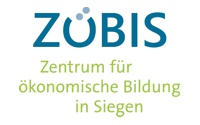Research fields
Teach social market economy
Social market economy is considered a very successful economic and social market system due to which Germany was able to recover after World War II and to which the country owns many decades of stability and prosperity. However, the idea of political order of economic processes which used to characterize social market economy in its original concept is more and more forgotten in politics and in the public. Therefore, social market economy gradually transformed over the years. One can argue how much the concept of political order of social market economy from the 1950s and today’s economic constitution in reality still have in common. When coming up with approaches to the question how social market economy can be taught today, this fact has to be considered the starting point. In this regard ZöBiS wants to break new grounds. A central concern is to test pedagogic models and methodologies to find out in how far they do not only transfer common contents that are usually associated with social market economy but to open up new perspectives to teach students the meaning of rules as a regulating principle of economic processes. They should achieve the ability to see “competition as a task“.
Further develop didactics of economics
The empiric description of economic learning and teaching processes is an essential task of modern economic education. This is why ZöBiS develops learning assessments in the areas of economic and financial competencies and is also carrying out large scale assessments with students on the testing platform www.ecos-test.de. On the one hand this is to provide the scientific base for the formulation of education standards. On the other hand it should become possible to consider economic and financial topics in large scale assessments such as PISA. Closely related to the empiric assessment of economic competencies is the question how competencies change during the course of a student’s life. The problem regarding business ethics, whether and if yes how economic understanding and moral judgment are linked to each other is a particular research interest of ZöBiS. Further topics that ZöBiS is working on are the basic economic education of adults, career guidance for students as well as entrepreneurship education.
Develop education districts
A main challenge in the education sector is to maintain the region’s competitiveness. Within a region many participants from the state, the educational system, the private sector and from civil society have a say in how the education infrastructure is used. The goal of this research area is the sustainable development of an education district as well as active support of social processes. This support can be in form of school development reports for regional authorities, impact studies of economic systems as well as school development within the region by means of teacher training and support in developing a school-internal curriculum for economic education.
